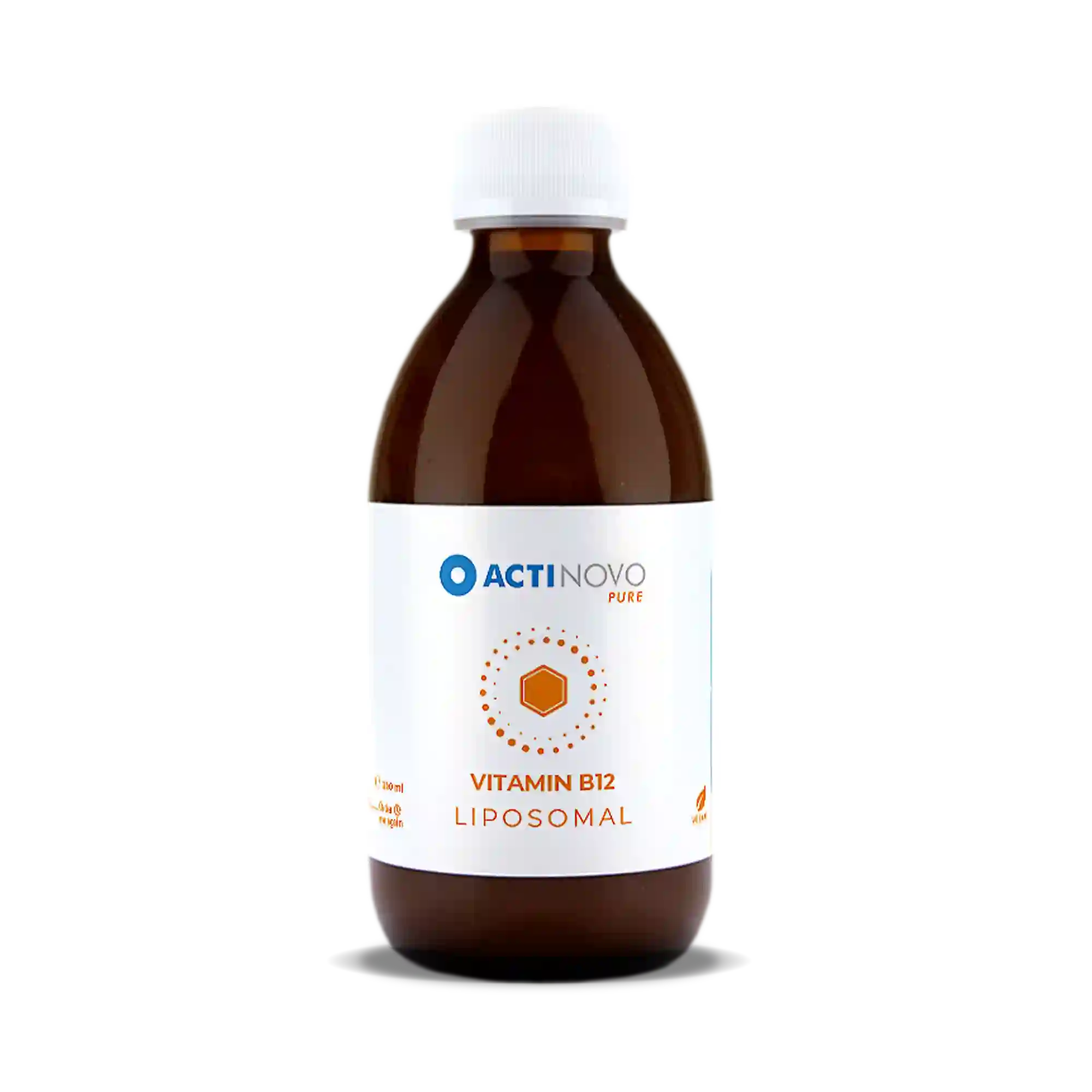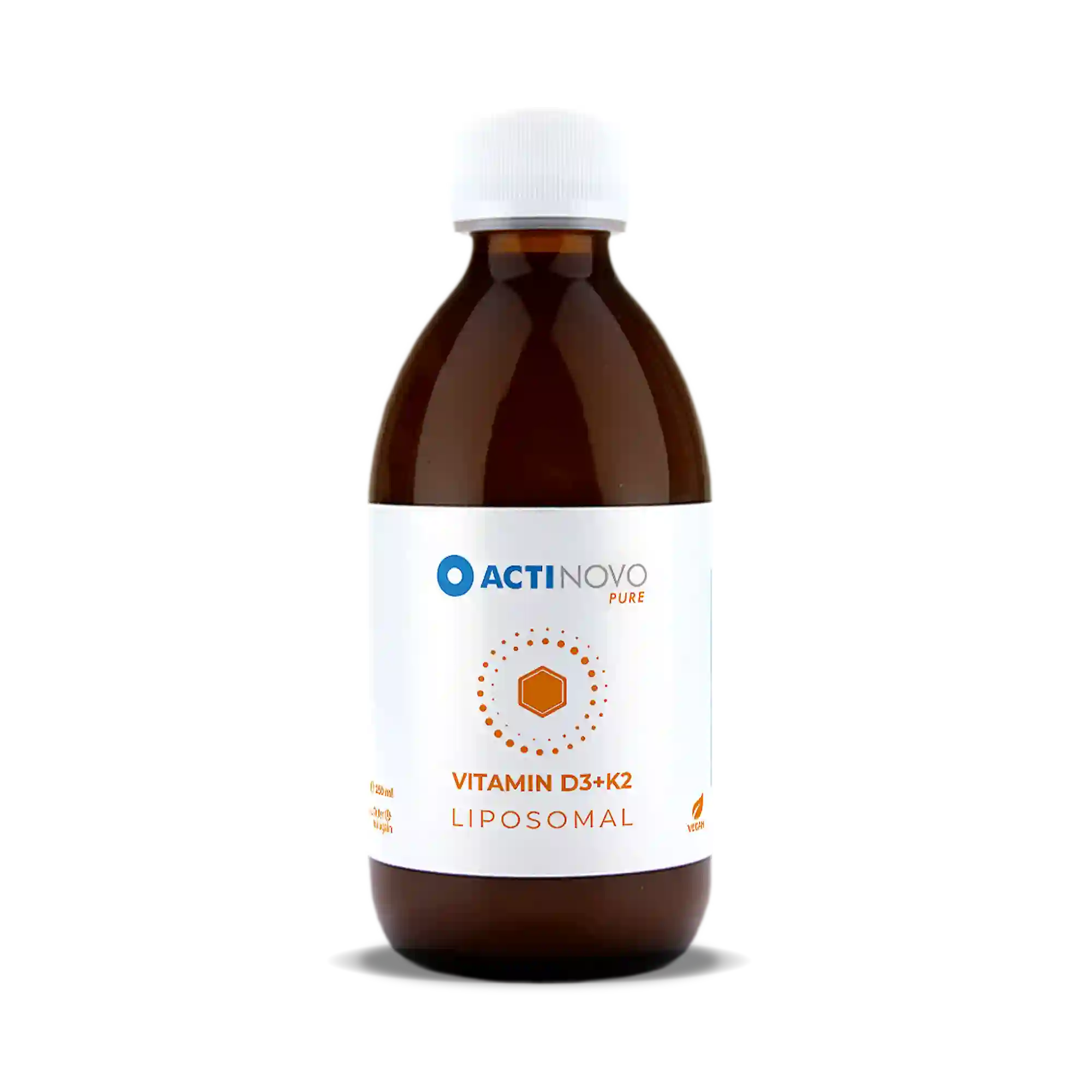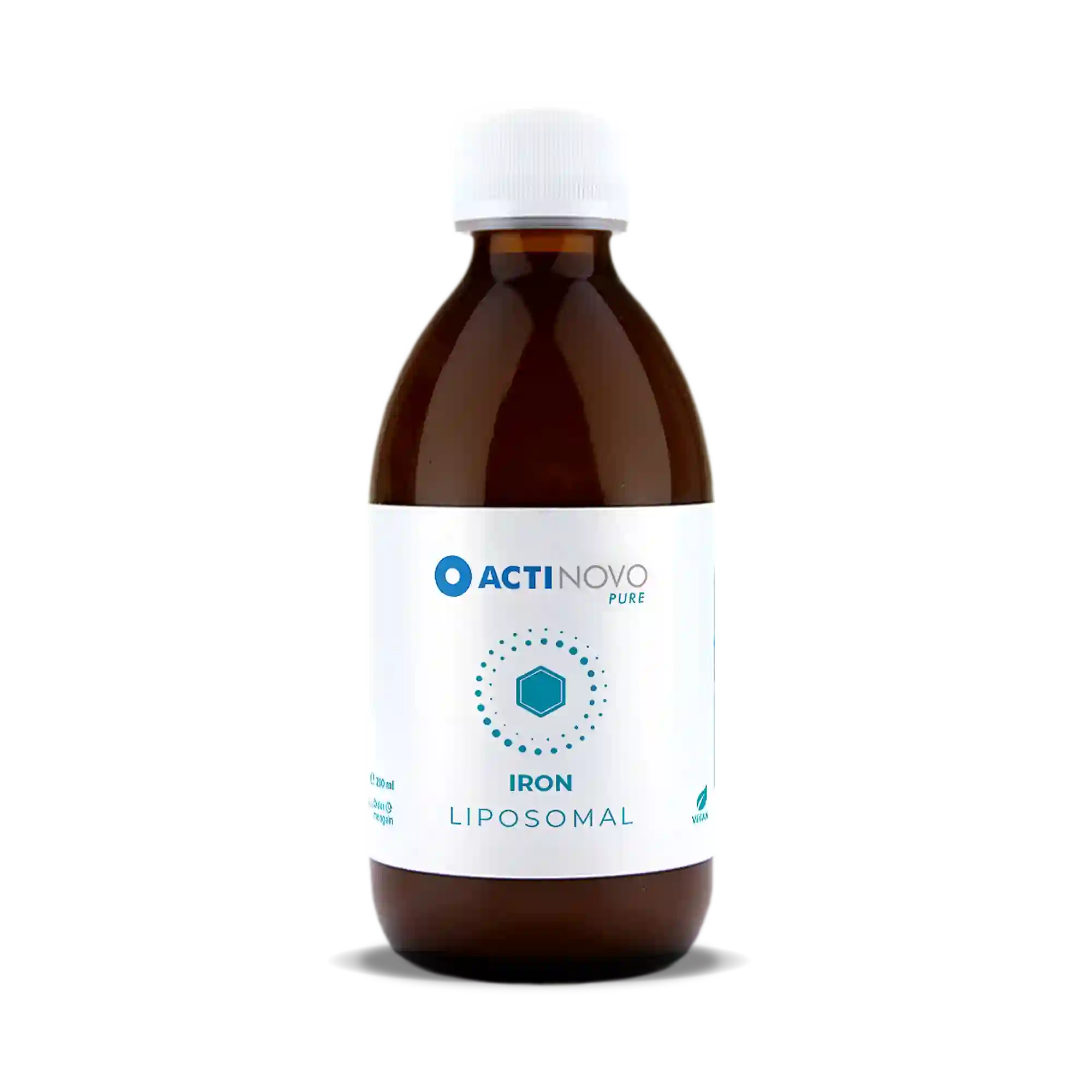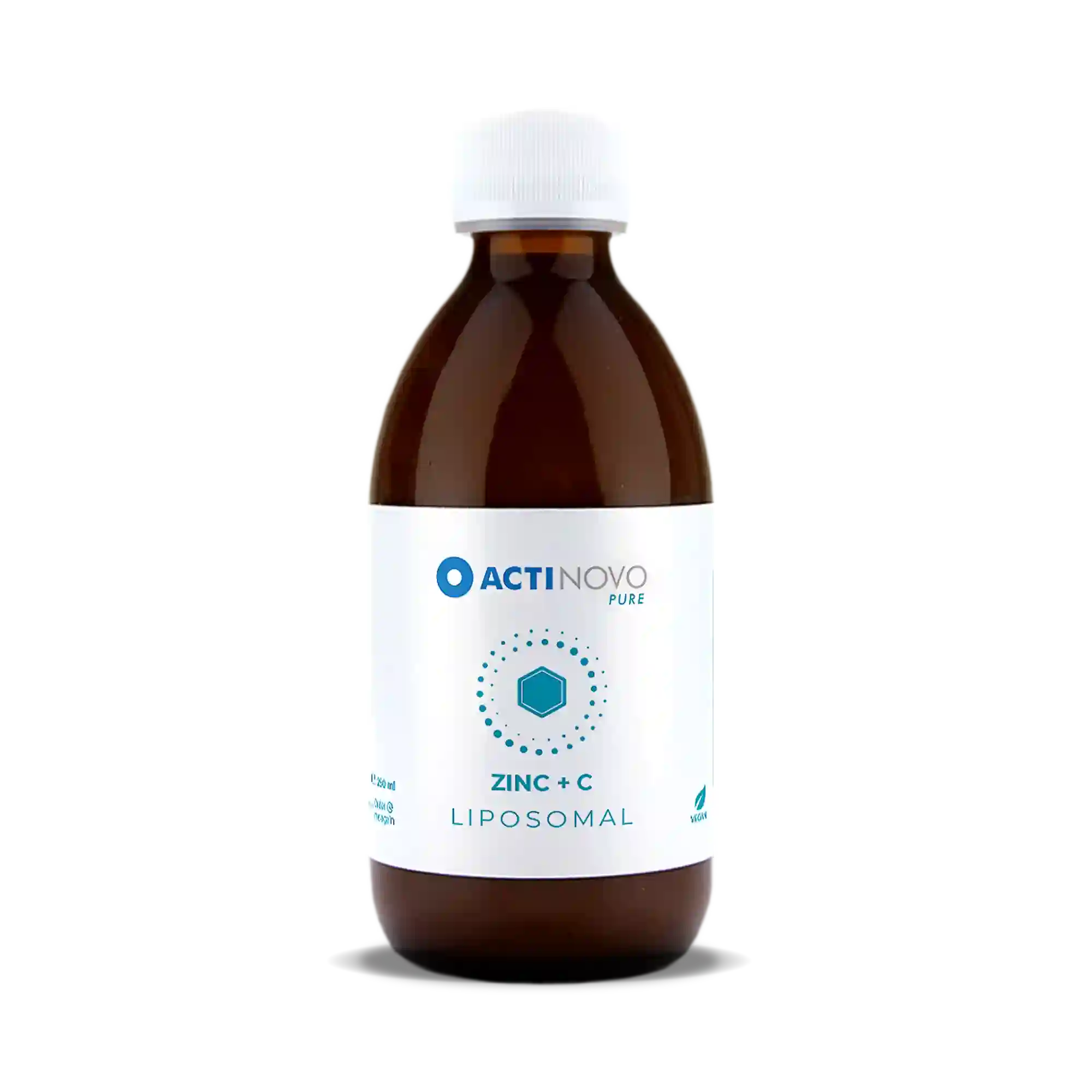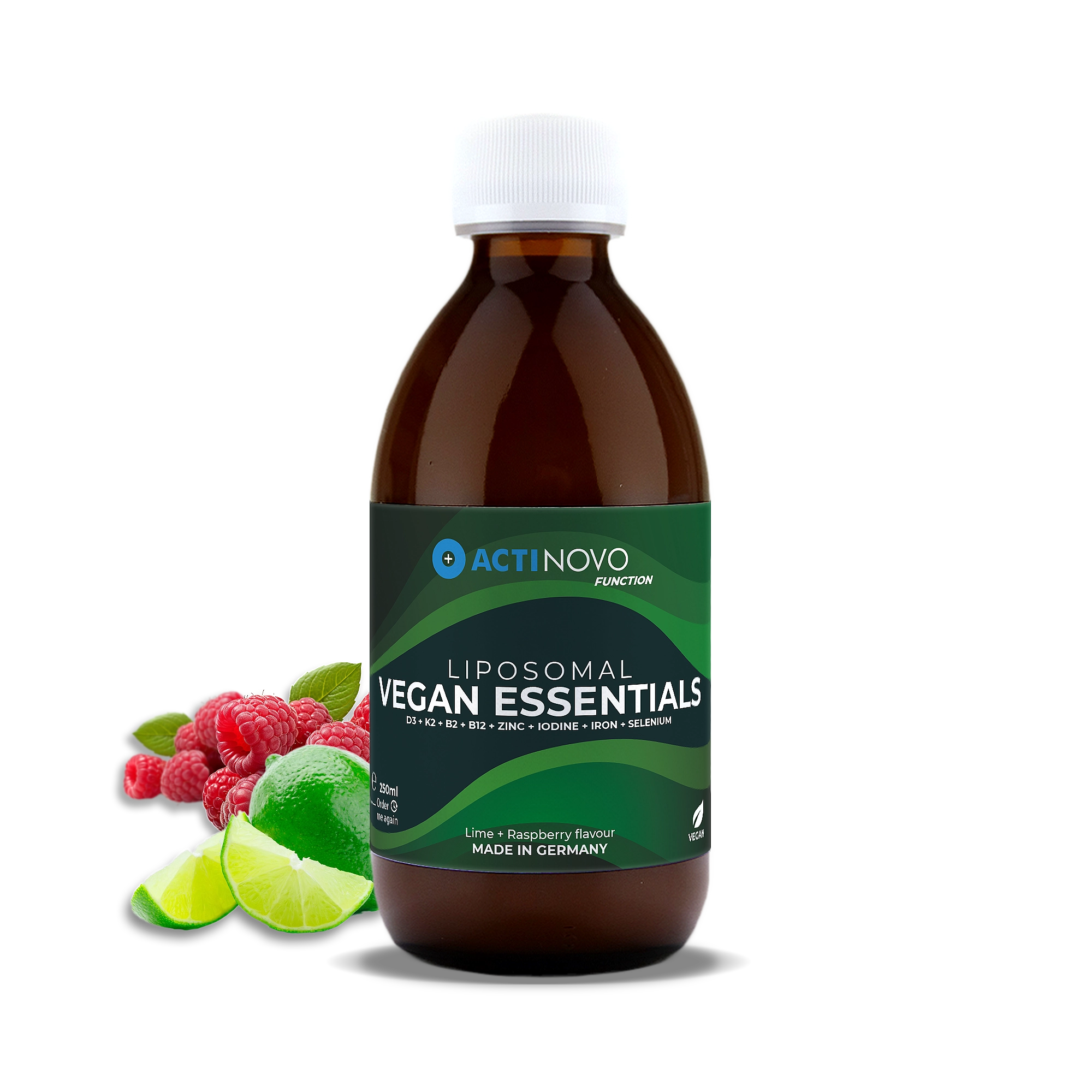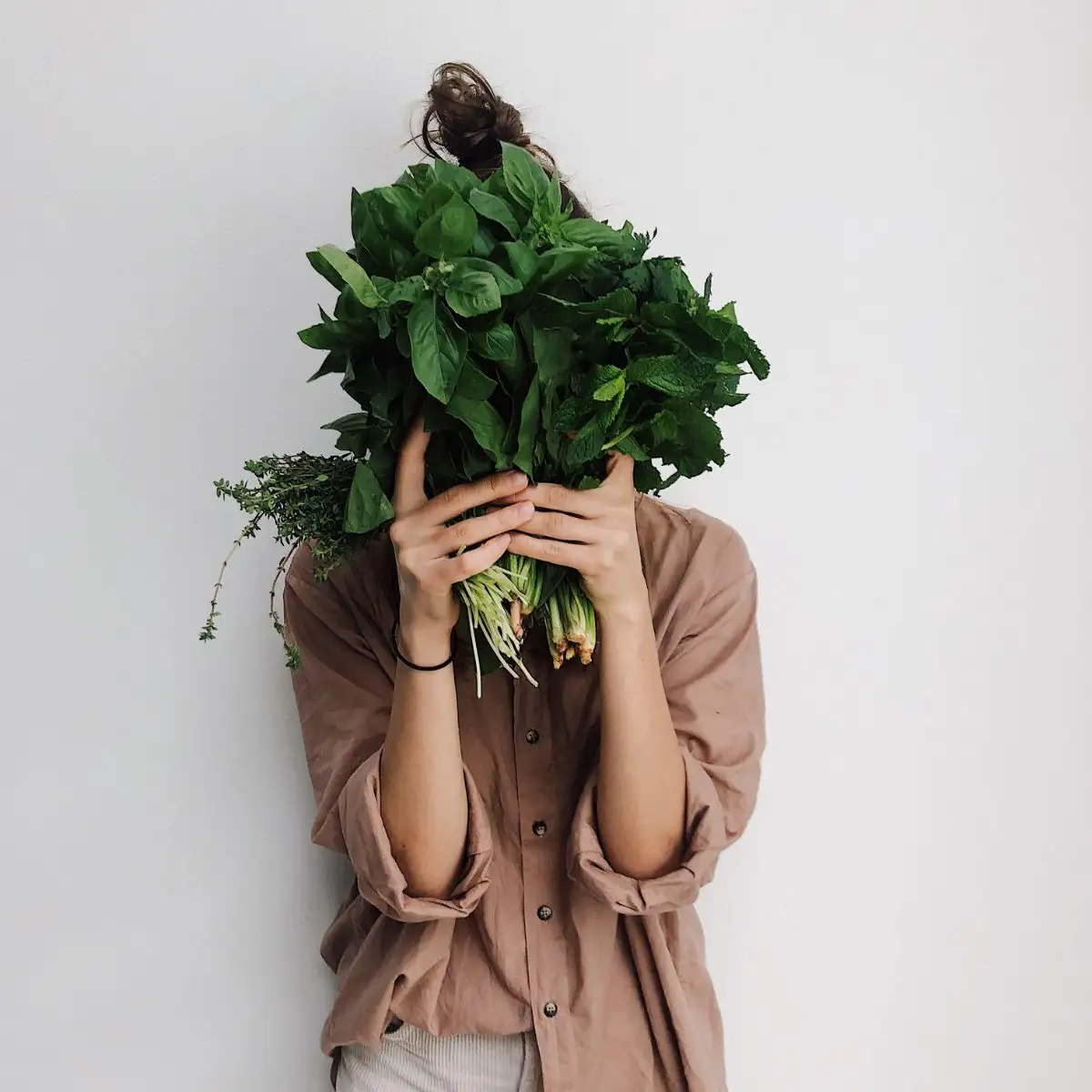
Vegan Nutrients in a Vegan Diet - what you should look out for
What will you learn in this article?
1. Vegan Diet on the Rise
2. Potentially Critical Nutrients
3. Vegans suffer from Protein Deficiency - What's the truth?
4. Are Vegans generally less well-nourished with Nutrients?
5. 5 Tips on how you can optimize you Nutrient Supply
6. A Balanced Vegan Diet - Is it possible?
7. The simple and effective solution: ActiNovo Vegan Essentials
1. Vegan Diet on the Rise
The vegan diet is gaining popularity. Currently, around 1.5 million people in Germany follow a vegan lifestyle [1], which accounts for approximately 1.8% of the German population. Many people are also interested in the purely plant-based lifestyle. There are numerous benefits associated with a vegan diet. At the same time, questions often arise: Is a vegan diet healthy? How can I avoid nutrient deficiencies on a vegan diet?
2. Potentially Critical Nutrients
Which nutrients are lacking in vegans?
Critical nutrients in a purely plant-based diet are mainly those primarily found in animal products or those difficult to obtain through plant-based foods. We'll explain which nutrients these are in the following sections.
Vitamin B12
You may have heard that a deficiency in vitamin B12 can easily occur in vegans if no additional dietary supplements are taken. Unfortunately, vitamin B12 is only found in sufficient amounts in animal products.
In fact, many animals are also artificially supplemented with vitamin B12 through their feed. Therefore, the most obvious way is to take your own dietary supplements instead of the animal route.
But why is it so important to be adequately supplied with vitamin B12? The vitamin is essential for the nervous system, the formation of red blood cells, energy metabolism, and DNA synthesis [2]. Depending on the severity, a deficiency can lead to various symptoms – from mild tiredness to severe neurological disorders [3].
Early prevention of a vitamin B12 deficiency is therefore extremely important. Even if the symptoms initially seem inconspicuous, neurological symptoms can even be irreversible [4].
In conclusion, an additional intake of B12 is an absolute must in a vegan diet to prevent deficiency in time.
Sun Vitamin D - Not Just a Problem for Vegans
Vitamin D is another critical nutrient. However, this does not only affect people who eat a purely plant-based diet: approximately 60% of the German population is below the recommended minimum level of 50 nanomoles per liter [5].
A large proportion of our vitamin D supply is absorbed through sunlight on our skin. During this process, cholesterol is converted into vitamin D with the help of sunlight. In the winter months, however, it can be challenging to get a sufficient supply of vitamin D at our latitudes. In addition, many people spend little time in the fresh air due to work and leisure activities.
Supplements can therefore help to contribute to a good vitamin D supply. Vitamin D is found in various forms, but vitamin D3 is the natural form produced in the human skin through exposure to sunlight. This biologically active form is also recommended for supplementation.
So what is vitamin D important for? This nutrient ensures a strong immune system, normal muscle function and healthy bones and teeth.
Vitamin D is found in some foods, but predominantly in animal products (with the exception of some edible mushrooms). Even with an omnivorous diet, consumption of these foods is not sufficient to ensure a sufficient supply of the vitamin. Food accounts for only 10-20% of the vitamin D supply.
With supplementation, you can ensure an adequate intake of the sunshine vitamin even in winter. Regular blood tests are advisable to prevent a deficiency.
Want to learn more about Vitamin D? Click here.
Iron
Iron is an essential nutrient for the human body. People who eat a purely plant-based diet should pay particular attention to an adequate supply of this trace element. However, iron is not only found in animal products, but also in plant-based foods. So why should vegans pay particular attention to adequate iron intake?
The reason for this lies in the bioavailability of plant-based iron. While animal sources of iron mainly contain bilvalent iron, plant-based products only contain trivalent iron. The trivalent iron is less well absorbed than the bivalent iron.
While coffee and black tea can additionally inhibit iron absorption, vitamin C can contribute to improved iron absorption [6]. A little orange juice with your morning muesli, for example, can help to improve absorption. Liposomal iron is recommended for supplementation as it is better tolerated by the stomach and enables increased bioavailability.
Liposomal iron is recommended for supplementation, as the liposomal encapsulation of the nutrient enables better tolerance in the gastrointestinal tract and increased bioavailability. Even without additional vitamin C, liposomal iron is absorbed significantly better than comparable non-liposomal supplements. A study on the bioavailability of ActiNovo's liposomal iron shows that it is 9 times more bioavailable than high-dose iron in combination with vitamin C. Compared to other non-liposomal preparations, ActiNovo's iron is even 398 times more bioavailable.
Find out more about the bioavailability study of our liposomal iron here.
This mineral fulfills numerous important functions in the body, including immune system function, energy metabolism, and the reduction of tiredness and fatigue.
Vegan foods high in iron: Legumes, green leafy vegetables, whole grain products, nuts, seeds.
Learn more about iron and how you can prevent a deficiency here.

Zinc
Another potentially critical nutrient in a vegan diet is zinc. In principle, zinc is also found in plant-based foods, but its absorption is inhibited by the plant substance phytate. This substance is found in many plant foods, for example legumes, wholemeal cereal products, nuts and some vegetables. Soaking, sprouting or sourdough fermentation of foods can reduce the phytate content and thus improve the bioavailability of zinc.
Zinc is an essential trace element with numerous important functions. These include supporting the immune system, promoting cell growth and maintenaning normal skin, hair and nails.
Vegan foods high in zinc: lentils, soybeans, whole grain products, cashews, flaxseeds, pumpkin seeds.
Find out all about zinc here.
Vitamin B2 (Riboflavin)
B-vitamin B2, also known as riboflavin, is an important nutrient for vegans. The nutrient is found in many animal products, but also in some plant foods. A balanced, varied plant-based diet is necessary to ensure an adequate supply of riboflavin. Otherwise, a vegan diet can make it difficult to get enough riboflavin from food.
It serves several functions in metabolism, including the maintenance of normal energy and iron metabolism, normal nervous system function and the maintenance of normal vision.
Vegan foods high in riboflavin: bran, almonds (e.g. almond butter), mushrooms, broccoli, nutritional yeast, soy products [7].

Iodine
Individuals who follow a vegan diet generally have a higher risk of iodine deficiency than those who eat an omnivorous diet [8]. However, vegans are not the only individuals at risk of iodine deficiency: according to the Robert Koch Institute, approximately 32 percent of adults and 44 percent of children and adolescents are at risk of insufficient iodine intake.
The reason for the increasingly poor iodine supply in Germany is that the iodine content of foods such as grains, fruits, and vegetables strongly depends on the iodine concentration in the soil. Due to the iodine-poor soils in Germany, the foods grown on them also have low iodine content [9].
Traditionally good sources of iodine such as fish and seafood are out of the question for vegans. The iodine content of other animal products is partly due to the addition of iodine to animal feed, making supplements again the more obvious solution. Some foods, such as salt, are already enriched with iodine due to the low iodine supply in the German population.
But why is good iodine supply so important? Iodine is an essential nutrient crucial for the functioning of the thyroid gland. Additionally, iodine is important for maintaining normal skin, normal energy metabolism and a normal nervous system.
Vegan foods high in iodine: iodized salt, seaweed (e.g., nori, wakame).
Selenium
Selenium is also a nutrient that depends on the nutrient content of the soil. This nutrient is not sufficiently present in the soil in Germany to cover requirements. The selenium content of foods can therefore vary greatly depending on the selenium content of the soil.
The vital nutrient selenium contributes to normal thyroid function, provides protection against oxidative stress and supports the normal functioning of the immune system.
Foods high in selenium: Coconuts, brazil nuts*, cabbage vegetables (e.g. broccoli, white cabbage).
*Incidentally, excessive consumption of brazil nuts is not recommended! They contain high doses of radioactive substances such as radium. Pregnant women, children and adolescents are therefore advised not to eat brazil nuts [10]. Healthy adults are less at risk, but it is recommended to avoid high amounts of brazil nuts.
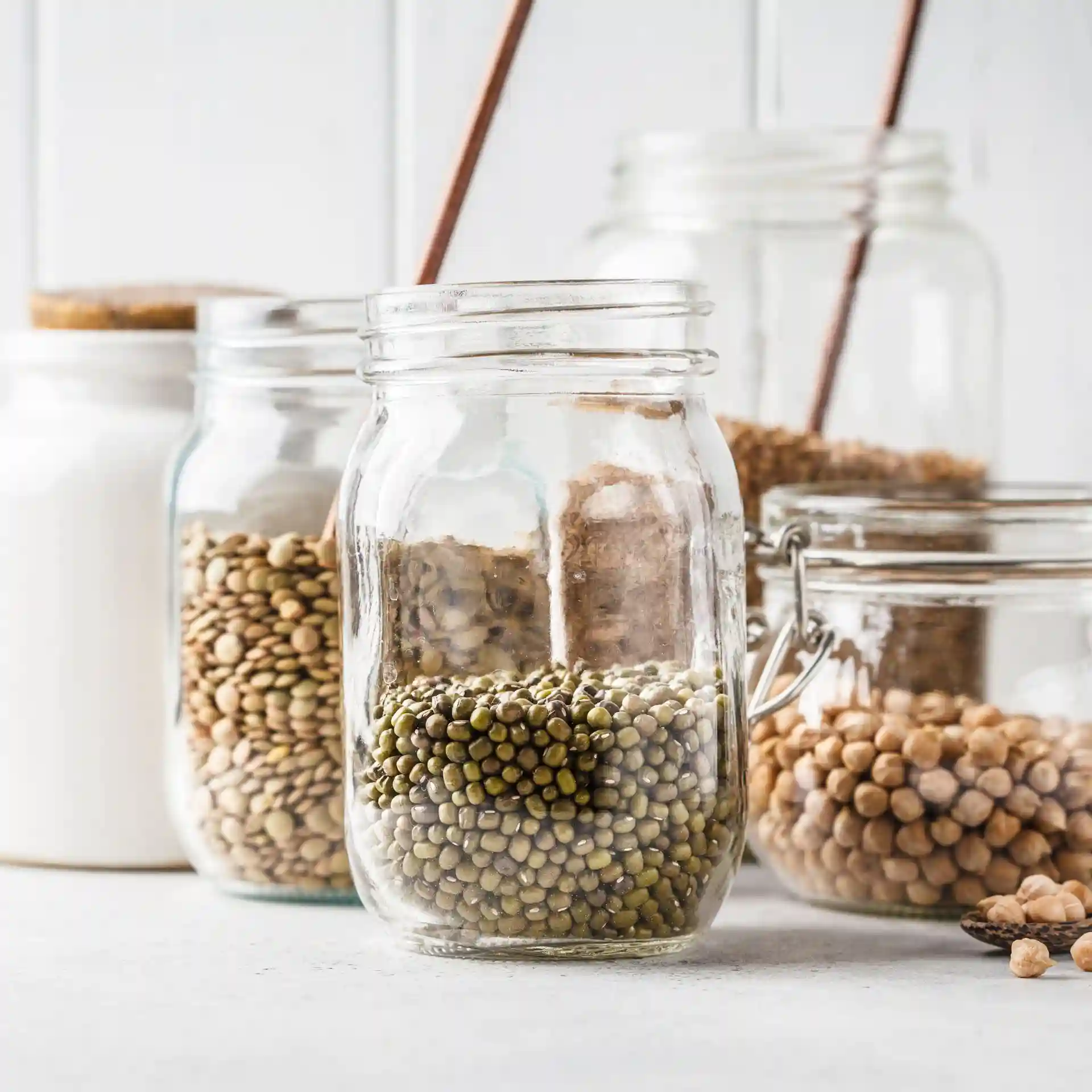
Vegans Suffer from Protein Deficiency - What's the Truth?
With a vegan diet, the question arises as to whether the protein requirement can be adequately covered with plant sources. In short: yes.
If you make sure to include plant-based protein sources in your diet, you can easily meet your protein requirements. The plant-based protein sources in a vegan diet are diverse: from legumes, soya products, wholegrains and pseudograins to seeds and nuts.
Athletes also like to use protein powders such as those made from pea, rice or hemp protein.
The term "biological value" is often used in connection with proteins. This describes how well the dietary protein can be converted into the body's own proteins. Animal-based foods tend to have a higher biological value and can therefore be better utilised by the body. This is related to the composition of the amino acids, i.e. the basic building blocks of proteins. A combination of different protein sources can improve the biological value.
An additional plus: vegan protein sources contain no cholesterol, which minimises the risk of cardiovascular diseases [11].
Are Vegans Generally Less Well-Nourished with Nutrients?
The NuEva study compared the nutrient intake of various dietary patterns. Flexitarians, vegetarians, and vegans were compared with individuals following an omnivorous diet (i.e., eating "everything"). The results show that vegan individuals consume less selenium, iodine, zinc, and iron than those following an omnivorous diet. With nutrients such as biotin, folate, and vitamin C, however, vegans are well-nourished [12].
The German Nutrition Society (DGE) categorises selenium, iodine, zinc, iron, riboflavin (vitamin B2), vitamin B12, calcium, protein and omega-3 fatty acids as potentially critical nutrients [13].
All in all, it can be said that vegans are on average particularly well supplied with some nutrients, but less well supplied with some other nutrients. However, if you make sure to consciously include potentially critical nutrients in your diet and supplement them if necessary, you can have a very balanced diet.
5 Tips on How You Can Optimise Your Nutrient Supply
- Sensible combination of foods: Improve the absorption of iron by combining iron-rich foods with sources of vitamin C. To increase the biological value of plant proteins, mix different protein sources in one meal.
- Pay attention to the preparation: The type of preparation can influence the bioavailability of nutrients! For example, soaking, sprouting or leavening foods can optimise nutrient absorption.
- Regular blood tests: Check your blood values regularly to recognise and treat possible nutrient deficiencies early on.
- Incorporate nutrient-rich foods and variety: Make sure your plant-based diet includes a wide range of nutrient-rich foods. This way you can get a variety of vitamins and minerals.
- Vitamin B12 supplementation: It is not possible to get enough vitamin B12 from food on a purely vegan diet. B12 supplements are therefore essential.

A Balanced Vegan Diet - Is It Possible?
It is important to understand that most diets are not healthy or unhealthy per se. Rather, it depends on how a diet is implemented and how varied the food choices are. A healthy diet is based on a balanced combination of different food groups and ensures that all the necessary nutrients are covered.
In principle, most nutrients are also contained in plant-based foods. However, there are exceptions such as vitamin D3 and vitamin B12, which cannot be adequately covered by a purely vegan diet. A deficiency of these nutrients is also not uncommon in people who do not follow a vegan diet.
One challenge with a vegan diet, however, is the availability of some nutrients. Due to the phytate contained in plant-based foods, some nutrients cannot be optimally absorbed if a lot of plant-based foods are consumed.
To summarise, it can be said that a balanced vegan diet is possible as long as attention is paid to a varied food selection. Potential nutrient deficiencies, especially in vitamin D3 and vitamin B12, can be compensated with suitable food supplements.
The Simple and Effective Solution: ActiNovo Vegan Essentials
All-round care for all people who follow a vegan diet is within reach with ActiNovo Vegan Essentials!
The liposomal Vegan Essentials contains potentially critical nutrients in a vegan diet in the optimum daily dosage. Our formula, developed by experts, combines all the vitamins, minerals, and trace elements essential for a balanced vegan diet. The supplement contains Vitamin D3 and K2, Vitamin B12, Vitamin B2, Iron, Selenium, Iodine as well as Zinc.
The liposomal supplement enables efficient nutrient absorption thanks to the unique liposome technology. This innovative technology ensures optimal absorption of valuable nutrients to ensure that your nutritional needs are fully met.
Find out more about liposomal technology here.
Your health is important to us!
Do you have any questions about the article or would you like to find out more? Feel free to reach out to us at service@actinovo.com, where our nutrition expert, ecotrophologist Amelia, will take care of it!

